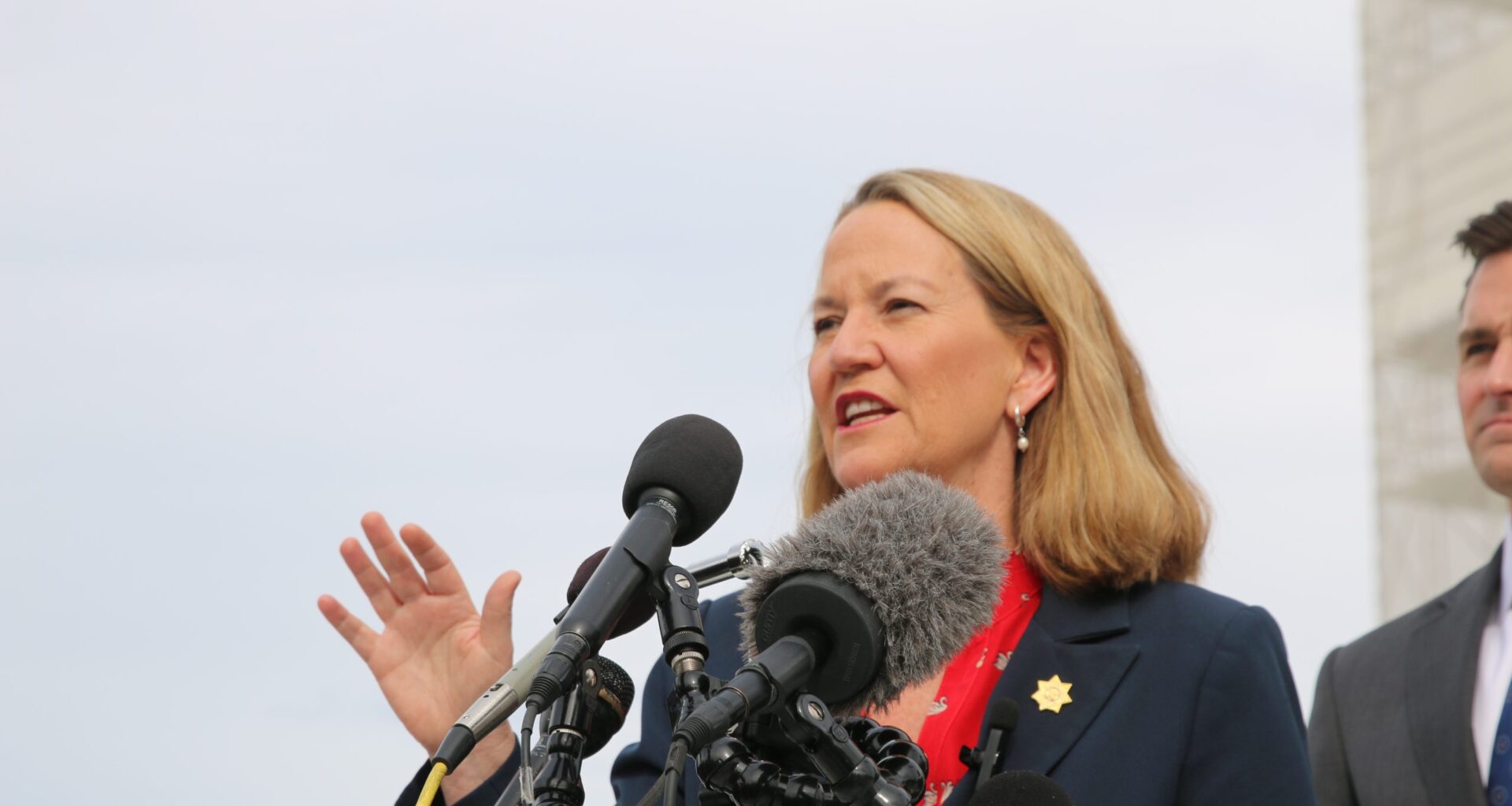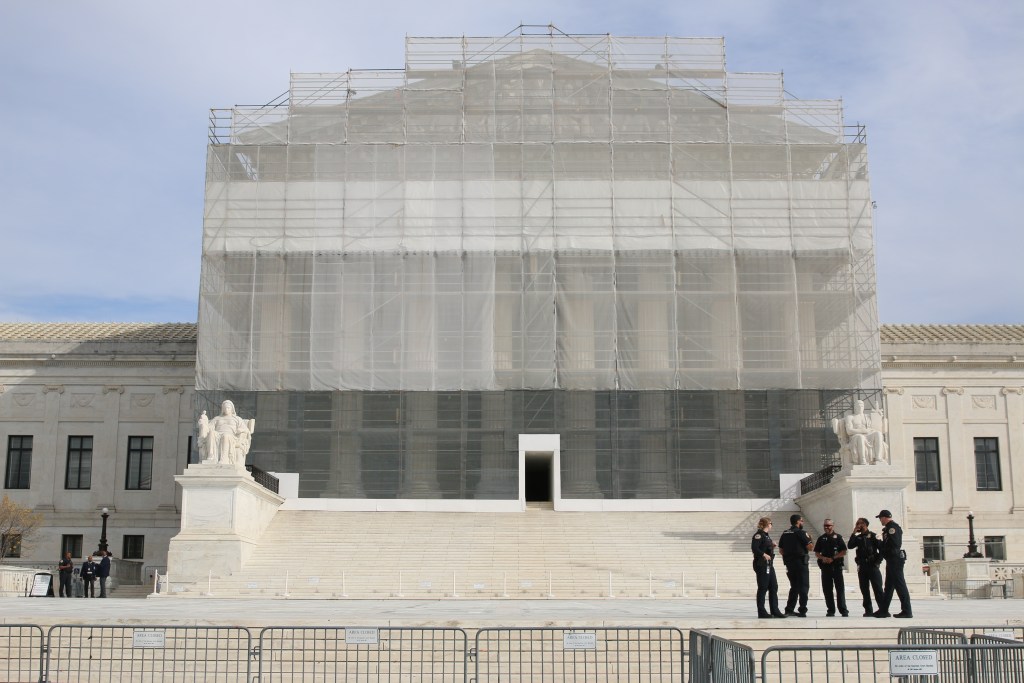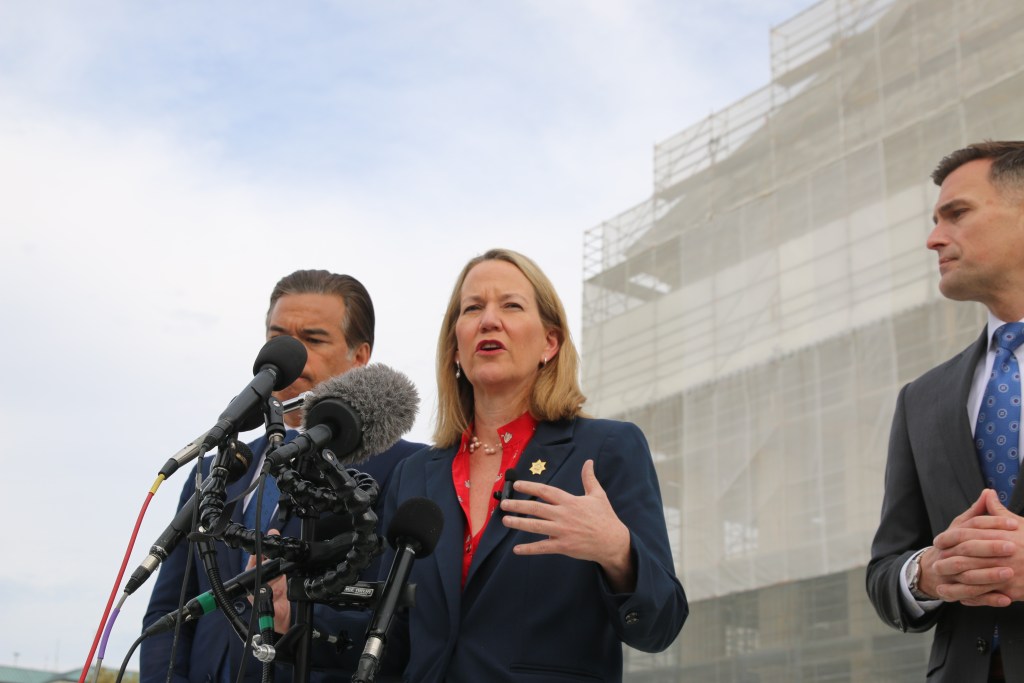Canonical Tag:
Copy Tag
Article Content:
‘Frenzy’ of state lawsuits against Trump by Democratic AGs mirrors GOP flurry against Biden
Tufan Neupane, Cronkite News
November 19, 2025
WASHINGTON – “I go into the office, I sue the federal government, and I go home,” Texas Gov. Greg Abbott said in early 2013 when he was the state’s attorney general.
At that point, he had filed 25 lawsuits against President Barack Obama’s administration over four years, about half of all Republican-led cases that states filed by the end of Obama’s two terms.
At the time, that was an unusually high number of state challenges to presidential authority.
But states have increasingly turned to the courts to try to influence national policy, protect state interests and block perceived federal overreach. When a Democrat is president, the torrent comes from Republican state officials. When there’s a Republican in office, it’s Democrats leading the charge.
Arizona Attorney General Kris Mayes has filed or joined 30 such lawsuits since President Donald Trump returned to the White House in January.
All but one of the other 22 states with a Democratic state attorney general have filed even more.
Arizona has challenged the recent interruption in federal nutrition aid during the government shutdown; immigration enforcement policies; funding cuts for science research, public health and education; Trump’s effort to end automatic citizenship for babies born in the U.S. with no American parent; and regulatory rollbacks intended to accelerate fossil fuel production.
“This is not what I get up every day wanting to do,” Mayes told Cronkite News recently, standing outside the U.S. Supreme Court after arguments on a multistate challenge to Trump’s expansive use of tariffs without congressional approval. “But if Donald Trump decides to violate the Constitution, violate statute, or harm the people of Arizona, I’m going to file that lawsuit.”
Mayes boasts that her efforts have already saved Arizona $1.5 billion, though she has won just two and lost two others. In 15 cases, her side persuaded courts to provide temporary relief.
The tally includes temporary wins involving $132 million in education funding and more than $1 billion related to orders Trump issued during his first week freezing just about any federal spending that didn’t align with his policy priorities.The Progressive State Leaders Committee, an advocacy group that tracks litigation between states and the federal government, counts 63 such cases since Trump returned to office on Jan. 20.
California is part of 47 of those, followed by Oregon with 44. Maryland and Illinois have 43. New York, Minnesota and Colorado with 42. With just 13, North Carolina is the only state with a Democratic AG that has filed fewer cases than Arizona.
The District of Columbia, which is ultimately controlled by Congress but has limited autonomy, is part of 29 cases.
Republican attorneys general are not part of any of the cases pitting Arizona against the Trump administration. Three states with Republican AGs but Democratic governors – Kentucky, Kansas and Pennsylvania – have joined some of those cases.
During Trump’s first term, he faced 155 suits filed by Democratic attorneys general and just four by fellow Republicans, according to a database compiled by Paul Nolette, a political scientist at Marquette University.
During President Joe Biden’s term, Republican AGs filed 122 such lawsuits. His fellow Democrats challenged him in court just eight times.
“Democratic AGs, in vehement disagreement with the Trump administration’s stances on immigration, education, environment, financial regulation, have initiated a frenzy of litigation to stop what they see as a dangerous agenda,” Nolette wrote in a 2018 paper, “in much the same way that Republican AGs took action against the Obama administration.”
Mayes and other Democratic AGs cast themselves as champions of taxpayers and citizens.
In the tariff case, Arizona, California and Oregon argued that Trump’s moves were illegal and raised costs for U.S. consumers and businesses.
“We have small businesses in Arizona that are going out of business every day,” Mayes said. “I’ve talked to a furniture manufacturer, a restaurateur, a hotel owner, cattle ranchers … all of whom are struggling because of these tariffs.”
Through mid-October, the litigation cost the state about $2 million, the Arizona Republic found.
Mayes asserted that Republican AGs “are losing billions of dollars” by refraining from court fights with the administration.
“They’re too afraid of Donald Trump … because he’s a dictator and he will punish them and he will end their political careers,” she said outside the Supreme Court.
California Attorney General Rob Bonta stressed the importance of defending constituents’ rights and budgets against unfair and unlawful federal policies.
“Tariffs are taxes. Congress has the power to impose taxes. The president does not,” he told reporters at the high court. “He has used tariffs in a sweeping manner to impose 10% to 145% taxes on nearly every one of our trade partners, and workers are suffering. Businesses are suffering. Families across the country are suffering.”
Oregon Attorney General Dan Rayfield rejected the suggestion of partisan motives, and explained a two-part test he uses when deciding whether to sue the federal government:
“Are Oregonians being harmed?” he said. “Is the Constitution or a law being violated? If the answer to those two questions is yes, we’re filing a lawsuit.”
The states’ track record is mixed under Trump.
According to the PSLC tracker, Mayes has won temporary pauses in 15 cases.
These include challenges to the administration’s attempt to dismantle AmeriCorps; cuts to National Institutes of Health funding for medical and public health research; the cancellation of electric vehicle charging infrastructure funds; new immigration rules requiring status verification before access to services; and the U.S. Department of Agriculture’s demand for data on recipients of the Supplemental Nutrition Assistance Program, an anti-hunger program that serves 42 million Americans.
Other successful pauses involved a policy that gave the so-called Department of Government Efficiency access to taxpayer data; the executive order seeking to deny birthright citizenship to children of parents in the country illegally or with temporary status; cuts to a federal disaster mitigation program; and an attempt to give immigration authorities access to health data.
Eight cases involving Arizona have no decision yet, including Trump’s efforts to terminate wind energy projects and “Solar for All” grants to expand access to solar energy for low-income families, and to impose restrictions on education grants.
In three cases, courts have allowed Trump policies to take effect as litigation continues.
That includes changes to NIH grant procedures; the delegation of executive power to billionaire Elon Musk when he led the DOGE cost-cutting effort; and rules governing the Affordable Care Act.
In June, the Department of Health and Human Services issued regulations that, among other things, would add verification requirements, impose monthly charges on consumers who qualify for $0 premiums and shorten the open enrollment period. Democratic attorneys general said that would violate the law “and would cause significant harm to states and their residents.”
Courts have rejected challenges from Arizona to block mass layoffs of probationary federal employees and at the Department of Education, though Arizona and other states successfully blocked that department from rescinding hundreds of millions in grants stemming from the COVID-19 pandemic.
Political scientists and legal scholars trace the uptick in multistate lawsuits against presidents to the 1980s.
Both the Republican Attorneys General Association and the Democratic Attorneys General Association frame their roles in openly partisan terms.
“For over 25 years, Republican AGs have been freedom’s frontline – from successfully challenging Obama and Biden overreach to today helping President Donald J. Trump make America safe, free, and great again,” RAGA says on its website.
Here’s how DAGA describes its mission: “After years of the Trump administration undermining good government, a Congress that continues to face gridlock, and statehouses increasingly capitulating to far-right extremism, the role that Democratic AGs play in protecting democracy and the rule of law is more important than ever.”
This article first appeared on Cronkite News and is republished here under a Creative Commons Attribution-NoDerivatives 4.0 International License.
Copy Content
Tracking snippet:
Copy Snippet

 The U.S. Supreme Court on Nov. 4, 2025, during oral arguments in a dispute over President Donald Trump’s use of tariffs without congressional approval. (Photo by Isabella Gomez/Cronkite News)
The U.S. Supreme Court on Nov. 4, 2025, during oral arguments in a dispute over President Donald Trump’s use of tariffs without congressional approval. (Photo by Isabella Gomez/Cronkite News) Arizona Attorney General Kris Mayes speaks to reporters at the U.S. Supreme Court on Nov. 4, 2025, after oral arguments in a dispute over President Donald Trump’s use of tariffs without congressional approval. At left is California Attorney General Rob Bonta, at right Oregon Attorney General Dan Rayfield. (Photo by Isabella Gomez/Cronkite News)
Arizona Attorney General Kris Mayes speaks to reporters at the U.S. Supreme Court on Nov. 4, 2025, after oral arguments in a dispute over President Donald Trump’s use of tariffs without congressional approval. At left is California Attorney General Rob Bonta, at right Oregon Attorney General Dan Rayfield. (Photo by Isabella Gomez/Cronkite News)